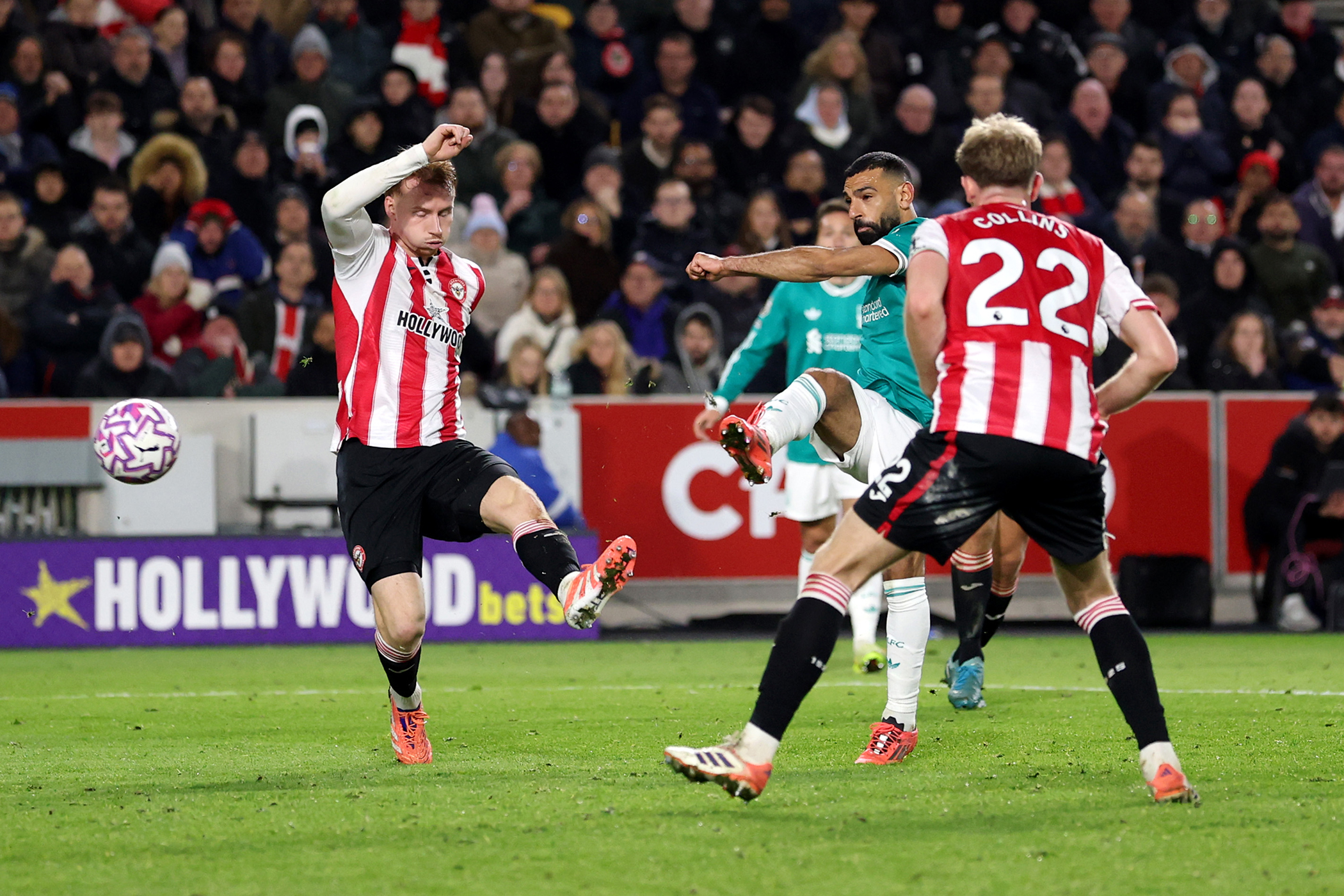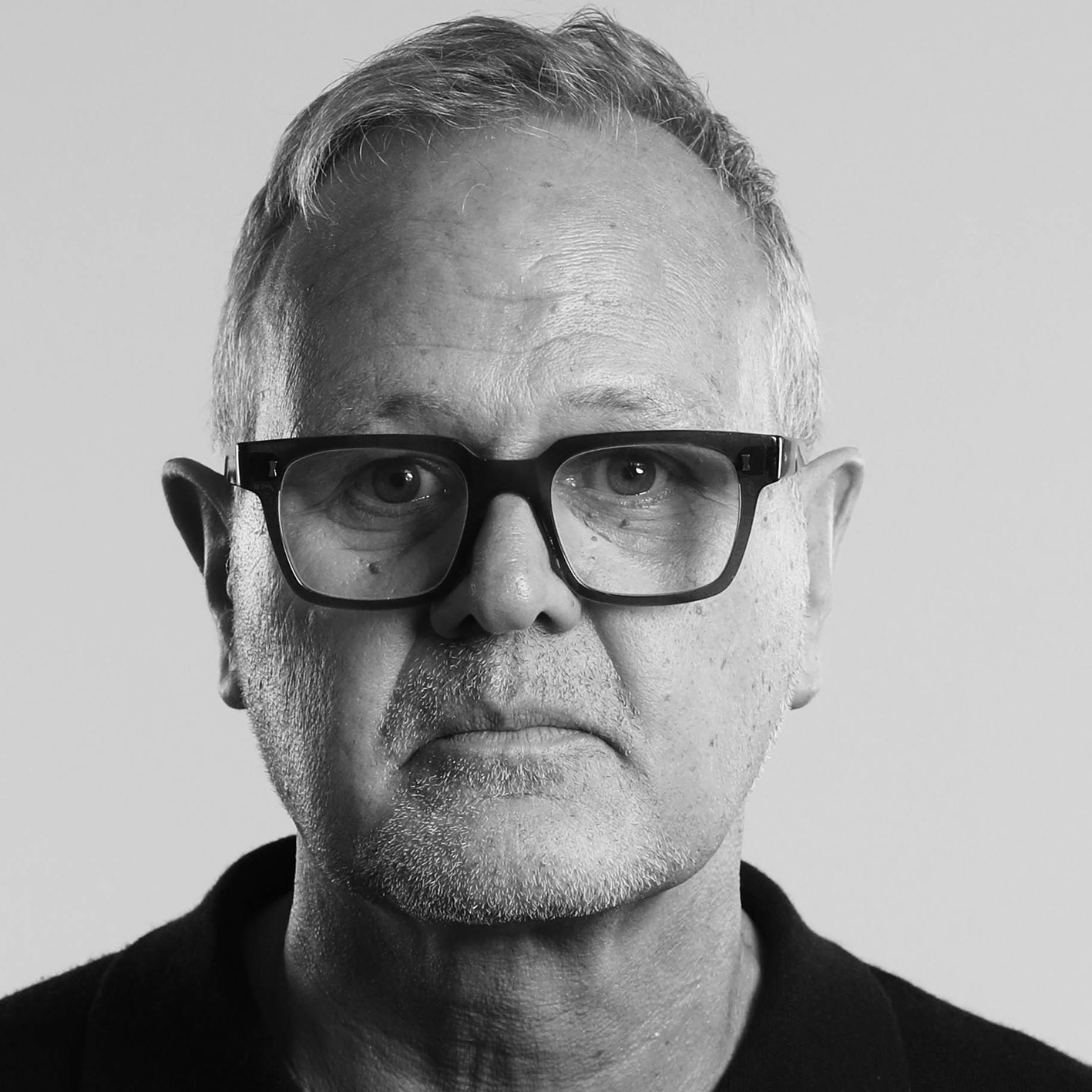It was barely six months ago when Mo Salah reclined on a gilded chair on red satin spread across Liverpool’s pitch. The “Egyptian King” captions were easy to write as Salah celebrated a new contract and his ascent to Anfield immortality.
The will-he-won’t-he? contract signing saga was interminable but ended with few in any doubt that he would be Liverpool’s totem for two more years. After claiming at one stage during the negotiations he was “more out than in”, he couldn’t have known that phrase would return in altered form the following autumn.
In Arne Slot’s title-defending squad, bristling with expensive signings, Salah was starting to look “more out than in” in Liverpool’s starting XI, which is why his inclusion here at Brentford felt like a minor news story in itself. Salah’s performance was mostly terrible, but at least he scored sweetly in the 89th minute when Liverpool were chasing the game.
It helped that Alexander Isak wasn’t fit, thus reducing the stress on Slot, who is in danger of acquiring a repetitive answer injury from all the questions about whether Salah is 1) In decline or 2) Not quite himself.
“Should I have to explain [how influential he is] or do his numbers speak for themselves?” was Slot’s latest protestation. “He is influential. Like every player this season, we haven’t brought the best out of him yet.”
It took three minutes for Liverpool’s supporters to strike up the night’s first “Mo Salah” chant. His main character energy may have dipped of late but his fans have far too many good memories of his lethal, darting presence in pivotal games to soften their allegiance now.
But more importantly it took Brentford 45 minutes to go 2-0 up with their admirably busy style, which made Liverpool look soft again against opponents who refuse to bend the knee to their fame. After an hour, Brentford were 3-1 in front.
After three straight Premier League defeats, there was a lot more going on at Liverpool than Salah’s viability as an automatic starter. But you have to start a crisis watch somewhere – and where better than a superstar who sits with Kenny Dalglish or Ian Rush on the scale of influence on results.
All the focus is on Liverpool’s front players, as an excess of strength. But it’s excessive vulnerability at the back that has inflicted the most damage. It was much too easy for example for Brentford to score after five minutes, when a long throw by Michael Kayode was headed on by Kristoffer Ajer and smashed in by Dango Ouattara. Brentford’s long throws are hardly a secret weapon, yet Liverpool looked incapable of believing anyone could score against them with such a rudimentary method.
From the clips compilations it was indisputable that Salah’s level has dropped across the full range from dribbling to ball control to crossing and shooting. A malaise so broad is almost never explained by overnight decline. Ageing is cruel but it doesn’t steal every faculty that quickly.
Newsletters
Choose the newsletters you want to receive
View more
For information about how The Observer protects your data, read our Privacy Policy
Only five months ago Salah ended a campaign with 47 “goal involvements”, to match the competition record set by Alan Shearer and Andy Cole. Only Alan Shearer (260), Harry Kane (213) and Wayne Rooney (208) have scored more Premier League goals than his 188.
In any creative industry you could find a star performer whose mind is blown by no longer being the headline act, or even by having to share that light with newcomers. A sense of ingratitude haunts the brain. Salah is in that special category of match winners who could tot up his contribution to Liverpool’s trophy wins since he joined in 2017 and ask: how could you treat me this way?
It sounds melodramatic, but this is the way stars think. The debt of loyalty they think exists is often not present in the thoughts of the employer, where a more ruthless logic prevails. If Liverpool thought they could retain their Premier League title by just getting the ball to Salah for another nine months, why did they spend £125m on Alexander Isak, £79m on Hugo Ekitiké and £116m on Florian Wirtz?
When Jamie Carragher said: “I don’t think Mo Salah should be starting every game right now,” people missed the “right now” bit. Carragher’s reference was to current form. It left open the possibility that his star could rise again. Salah was left out for two consecutive Champions League games, including the 5-1 win at Eintracht Frankfurt, but returned here to attack in concert with Wirtz, Ekitiké and Cody Gapko. Wirtz had his best game in Frankfurt but was too often physically dominated by Brentford, who offered a seminar on how to discomfit a team – even defending champions – low on confidence and conviction.
By the side of the M4, on the season’s first truly cold night, we saw the real contrast between Liverpool last season and this. In. Slot’s first campaign they possessed a better balance between defence and attack, but more importantly a relentless, domineering attitude that has yet to return.
They bought players to supercharge their attacking play, but also to decorate it, but the splurge hasn’t worked yet. Salah, who threw himself into challenges, as if to restore his competitive edge, is a mere detail. It’s natural to fixate on a team’s best player when things are going wrong but Liverpool are finding it tough in every area. Brentford could see that – and made them suffer more.
Photograph by Alex Pantling/Getty Images



